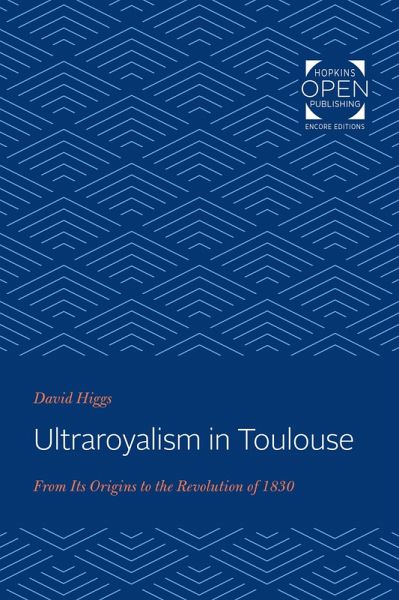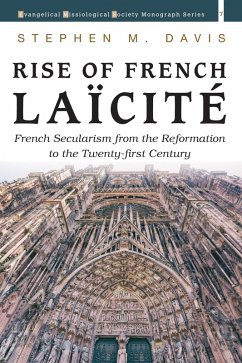
Ultraroyalism in Toulouse (eBook, ePUB)
From Its Origins to the Revolution of 1830
Versandkostenfrei!
Sofort per Download lieferbar
24,95 €
inkl. MwSt.
Weitere Ausgaben:

PAYBACK Punkte
12 °P sammeln!
Originally published in 1973. Ultraroyalism in Toulouse examines in detail the origins of ultraroyal hostility to the social and political changes rendered by the French Revolution. France has produced a variety of theories of decline, corresponding to the nation's changing political fortunes in Europe and the world. The Revolution represented another, at least temporary, victory of the state apparatus over local community and privilege, and it stimulated the longing, apparent in all parts of the country after the fall of Napoleon, for a return to older forms of society and government that wer...
Originally published in 1973. Ultraroyalism in Toulouse examines in detail the origins of ultraroyal hostility to the social and political changes rendered by the French Revolution. France has produced a variety of theories of decline, corresponding to the nation's changing political fortunes in Europe and the world. The Revolution represented another, at least temporary, victory of the state apparatus over local community and privilege, and it stimulated the longing, apparent in all parts of the country after the fall of Napoleon, for a return to older forms of society and government that were essentially provincial and rural. The stevedores of Marseille, the fisherman of Brittany, and the peasants of the Auvergne saw plainly enough that the Revolution had not solved the problems of poverty and economic distress. Like the nobles, the ex-parlementarians, and the descendants of local oligarchies, they were hostile to the ascendancy of Paris. On all levels of French society were those who selectively remembered the best of the Old Regime, dwelt on the most obvious failures of the Revolution's religious and welfare policies, and blamed facile utilitarians who did not understand tradition for the destruction of the pre-1789 institutions. This book examines in depth the form that ultraroyalism took in Toulouse.
Dieser Download kann aus rechtlichen Gründen nur mit Rechnungsadresse in A, B, BG, CY, CZ, D, DK, EW, E, FIN, F, GR, HR, H, IRL, I, LT, L, LR, M, NL, PL, P, R, S, SLO, SK ausgeliefert werden.












